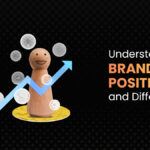In today’s digital era, the role of social media in modern brand management cannot be overstated. It has fundamentally transformed how brands interact with their audiences, build their identities, and engage in competitive markets. The convergence of social media with digital marketing services, packaging design, and brand identity has created an intricate web that digital marketing agencies and consultants must navigate to deliver successful strategies.
The Evolution of Brand Management
Traditionally, brand management relied heavily on print media, television, and radio. While these channels remain relevant, the rise of digital platforms has ushered in a new age of marketing. Social media, with its vast reach and interactive nature, has become a cornerstone for modern brand management.
This shift necessitates a comprehensive understanding of digital marketing services, social media marketing services, and the integration of brand identity across all platforms.
Social Media: A Powerful Tool for Brand Identity
Social media platforms like Facebook, Instagram, Twitter, LinkedIn offer unique opportunities for brands to cultivate a distinctive identity. These platforms are not just communication channels but arenas where brand identity is continuously built and reinforced.
A brand identity agency plays a crucial role here, helping companies craft a coherent and compelling brand story. This involves not only visual elements like logos and color schemes but also the tone of voice, values, and the overall narrative. Effective brand identity design on social media ensures that every post, comment, and interaction aligns with the brand’s core values and aesthetic, creating a consistent and memorable impression on the audience.
Engaging with Audiences
One of the most significant advantages of social media is the ability to engage directly with the audience. Unlike traditional media, where communication is mostly one-way, social media facilitates a two-way interaction. Brands can respond to comments, engage in conversations, and receive immediate feedback.
This engagement is crucial for building a loyal community. Digital marketing consultants emphasize the importance of interaction in fostering a sense of belonging and loyalty among followers. Whether it’s responding to customer queries, participating in trending conversations, or hosting live sessions, the direct line to the audience helps in humanizing the brand and building trust.
Content Strategy and Social Media
Content is king in the realm of social media. The type, quality, and frequency of content significantly impact how a brand is perceived. A well-thought-out content strategy, crafted by a digital marketing agency, ensures that the brand’s message is effectively communicated across different platforms.
Visual content, in particular, plays a pivotal role. High-quality images, videos, and graphics can capture attention and convey the brand’s story more dynamically. This is where packaging design agencies and packaging structure design services come into play.
While traditionally focused on physical product packaging, these services are now integral to digital marketing. The visual elements designed for product packaging can be seamlessly integrated into social media content, maintaining a consistent brand image.
Analytics and Data-Driven Decisions
One of the most significant advantages of digital marketing services is the ability to track and analyze performance in real-time. Social media platforms offer a wealth of data on user behavior, engagement rates, and demographic information. Digital marketing consultants leverage these insights to refine strategies, optimize campaigns, and achieve better results.
Analytics tools can measure the success of social media campaigns, providing metrics such as reach, impressions, clicks, shares, and conversions. By analyzing this data, brands can identify what works and what doesn’t, allowing for agile and informed decision-making. This data-driven approach ensures that marketing efforts are continuously optimized for maximum impact.
Social Media Advertising
Paid advertising on social media is a powerful tool for expanding reach and targeting specific demographics. Platforms like Facebook and Instagram offer sophisticated targeting options, allowing brands to reach their ideal audience based on interests, behaviors, and demographics.
Digital marketing services often include managing social media ad campaigns, ensuring that they are cost-effective and aligned with the overall brand strategy. These campaigns can drive traffic, generate leads, and boost sales, complementing organic efforts to enhance brand visibility and engagement.
Crisis Management and Brand Reputation
Social media’s real-time nature is a double-edged sword. While it offers immediate engagement opportunities, it also means that any negative feedback or crisis can spread rapidly. Effective brand management on social media requires a proactive approach to crisis management.
A brand identity agency can help prepare crisis communication plans, ensuring that the brand responds swiftly and appropriately to any negative incidents. Transparency, timely responses, and a well-thought-out communication strategy can mitigate damage and maintain the brand’s reputation.
Integrating Packaging Design with Social Media
The intersection of packaging design and social media presents unique opportunities for brands. Packaging design services are no longer confined to the physical product but extend to the digital realm. The visual appeal of product packaging can be showcased on social media, creating a cohesive brand experience.
Packaging structure design services can help create visually striking and innovative packaging that stands out on social media feeds. Unboxing videos, product showcases, and user-generated content featuring the packaging can enhance brand visibility and engagement. This integration ensures that the brand’s visual identity is consistent across all touchpoints.
The Role of Influencers
Influencer marketing has become a significant component of social media strategies. Influencers, with their large and engaged followings, can amplify a brand’s message and reach a wider audience. Collaborating with influencers allows brands to tap into new markets and build credibility through trusted voices.
Digital marketing agencies often facilitate these collaborations, ensuring that the influencers align with the brand’s values and target audience. Influencer campaigns can take various forms, from sponsored posts and product reviews to long-term brand ambassador partnerships.
The Future of Social Media in Brand Management
The landscape of social media is continually evolving, with new platforms and trends emerging regularly. Staying ahead of these changes is crucial for effective brand management. Digital marketing consultants and agencies must keep abreast of the latest developments, adapting strategies to leverage new opportunities.
The integration of advanced technologies like artificial intelligence (AI) and augmented reality (AR) is set to transform social media marketing. AI can enhance personalization and targeting, while AR can create immersive brand experiences. These technologies will enable more innovative and engaging ways to connect with audiences.
Social media has become an indispensable tool in modern brand management. It offers unparalleled opportunities for engagement, visibility, and growth. By leveraging digital marketing services, social media marketing services, and packaging design services, brands can create a cohesive and compelling identity that resonates with their audience.
Digital marketing agencies and consultants play a pivotal role in navigating this complex landscape, ensuring that brands are not only present but thriving on social media. As the digital world continues to evolve, the importance of social media in brand management will only grow, making it essential for brands to embrace these platforms and strategies wholeheartedly.
In this dynamic and competitive environment, the synergy between social media, digital marketing, and packaging design will define the success of modern brand management. By understanding and harnessing these elements, brands can build strong, lasting relationships with their audience, driving growth and achieving their business objectives.



